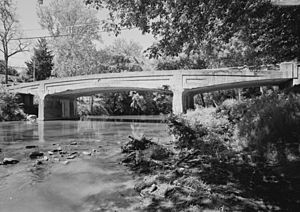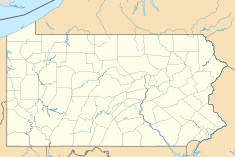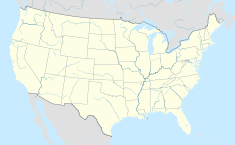Bridge in West Earl Township facts for kids
Quick facts for kids Bridge in West Earl Township |
|
|---|---|

Bridge in West Earl Township in 1999.
|
|
| Carries | Farmersville Road (State Route 1010) |
| Crosses | Conestoga River |
| Locale | Brownstown, Pennsylvania |
| Other name(s) | Big Conestoga Creek Bridge No. 12 |
| Maintained by | PennDOT |
| Characteristics | |
| Design | Cantilevered girder |
| Material | Concrete |
| Total length | 130 feet (40 m) |
| Width | 18 feet (5.5 m) |
| Longest span | 62 feet (19 m) |
| Number of spans | 3 |
| Piers in water | 2 |
| Load limit | 20 short tons (18,000 kg) |
| History | |
| Designer | Frank H. Shaw |
| Constructed by | Paul D. Kauffman |
|
Bridge in West Earl Township
|
|
| Area | less than one acre |
| Built | 1917 |
| Built by | Paul D.Kauffman |
| Architect | Frank H. Shaw |
| MPS | Highway Bridges Owned by the Commonwealth of Pennsylvania, Department of Transportation TR |
| NRHP reference No. | 88000875 |
| Added to NRHP | June 22, 1988 |
The Bridge in West Earl Township is a special bridge. It's also known by its historic name, Big Conestoga Creek Bridge No. 12. This bridge is listed on the National Register of Historic Places. It used to carry Farmersville Road over the Conestoga River. You can find it near Brownstown, in West Earl Township, Lancaster County, Pennsylvania, United States.
Contents
The Historic Bridge in West Earl Township
This bridge was built in 1917. What made it special was its unique design. It was a three-part bridge made of concrete. It had a curved, continuous design. This means the main parts of the bridge were connected without breaks. It also had a special feature: it didn't touch its end supports, called abutments.
What Made This Bridge Special?
The Bridge in West Earl Township was a type of bridge called a girder bridge. It had three spans, which are the sections between supports. The design was continuous, meaning the main beams ran without interruption across all three sections. It was also an "arched" design, giving it a curved look. This unique style made it stand out.
Who Designed and Built It?
Frank H. Shaw designed this bridge. He was an engineer for Lancaster County when it was built in 1917. The builder who constructed the bridge was Paul D. Kauffman. The bridge was officially added to the National Register of Historic Places on June 22, 1988. This means it's recognized as an important historic structure.
Why Was It Replaced?
The original bridge served the community for many years. However, in 2019, a new bridge took its place. The new structure also has three spans, just like the old one. When building the new bridge, designers made sure it looked good. They wanted it to fit in with the area, especially since it replaced a historic landmark.
Images for kids
 | Shirley Ann Jackson |
 | Garett Morgan |
 | J. Ernest Wilkins Jr. |
 | Elijah McCoy |




